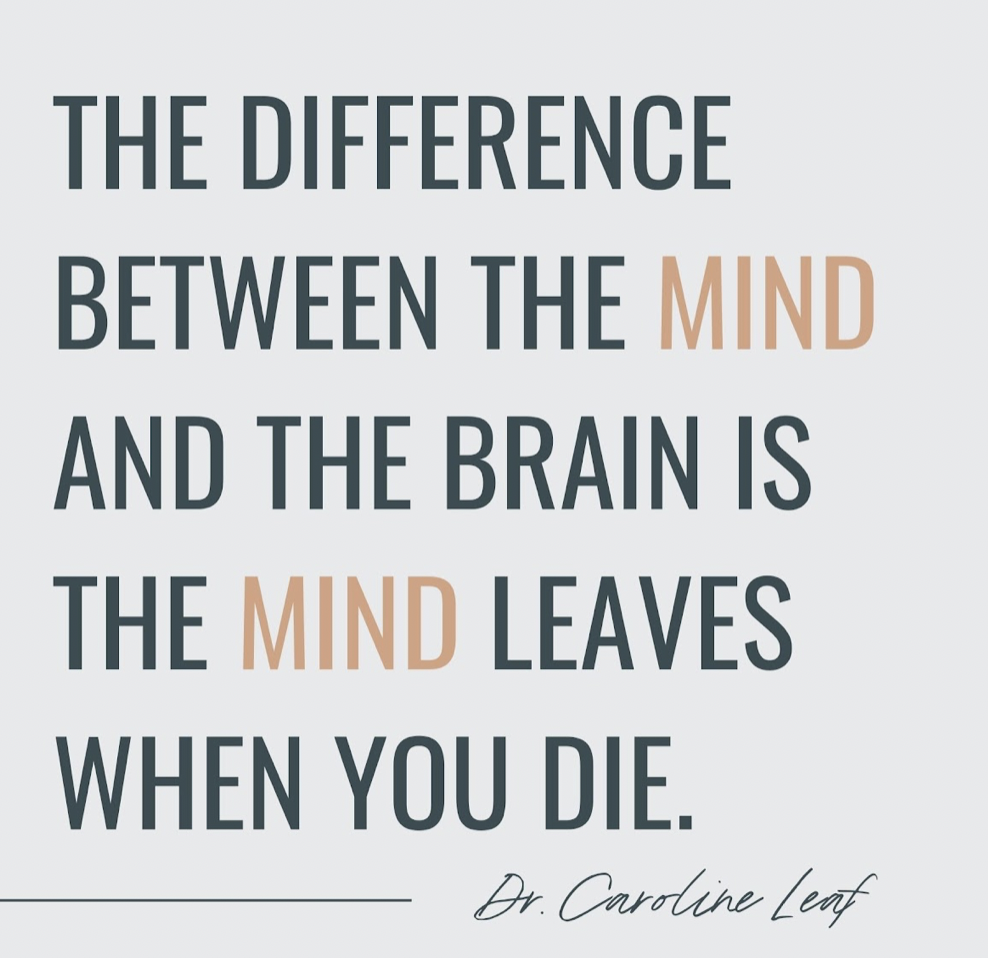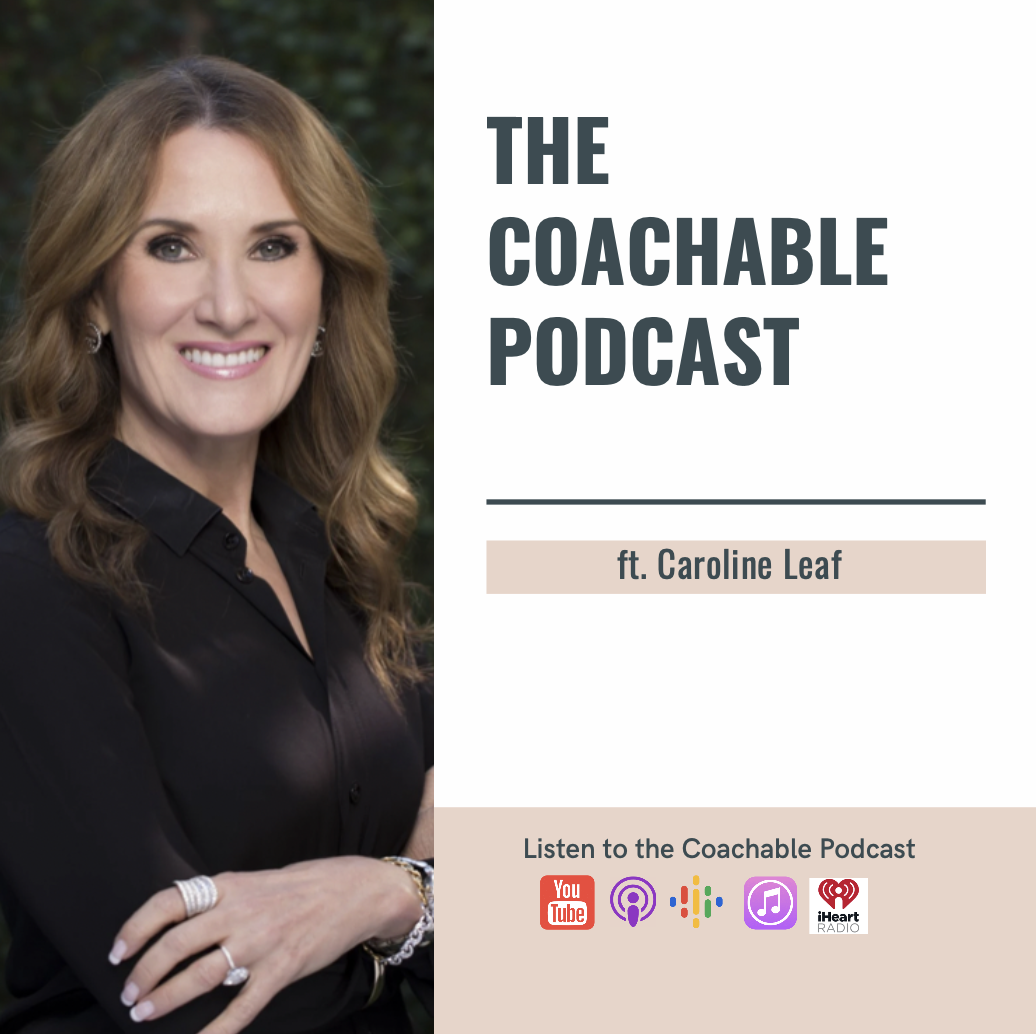Eliminating Toxic Thoughts Through Neurocycle
We understand through our minds, but have we ever tried to understand how our mind works?
Dr. Caroline Leaf, cognitive neuroscientist, communication pathologist, and best-selling author of Cleaning Up Your Mental Mess, helps us break down the difference between your brain and mind and understand the processes of your nonconscious subconscious and conscious minds. She teaches us how we can use them to start reprogramming our brains for success and well-being.
Why do we really think, act, and feel the way we do? There’s a lot to unpack, but let’s start with distinguishing the mind from the brain.
The Mind and The Brain
The mind and the brain are two huge concepts that many of us think are intertwined.
What is the difference between them? This question has created many scientific and philosophical debates for so many centuries. There was a concept of dualism, but the most dominant school of thought was ante-dualism—that the mind and brain are the same things. But not until about 40 years ago.
As neuroscience advanced over the years allowing us to learn more about the brain, the more popular thought now is scientific dualism—that the mind is as physical as the brain, although a different type of physicality.

Think of gravity. We’re not floating because of gravity. Although we can’t see gravity, we know it’s there because of the evidence of us not floating.
Same with the mind—there’s evidence of the mind because we can converse with others. We are thinking, feeling, and choosing all day long in response to life’s experiences. That’s the mind—it is in our aliveness, our humanness.
The mind is what animates the brain.
It is the driving force of energy that enables you as a human to experience life. But it needs another type of physicality to put the experience into it as electrochemical fields—the brain. These experiences are built structurally into the brain as trees of thoughts, the branches being memories.
The brain responds to these experiences and results in a genetic response. It sends a message to every cell of the body, which builds a duplicate memory of the tree. That’s why we feel memory in our body as well. And so we’re experiencing life.
The 3 Levels of Mind
Nonconscious Mind
The nonconscious mind comprises most of who you are. It’s the most intelligent part of you that works 24/7 at quantum speeds faster than 400 billion actions per second and operates in the past, present, and future.
Your nonconscious mind drives ninety-five percent of your average 8000 experiences a day. These experiences are happening without you being aware of them. It’s by the pure virtue of being alive.
The best thing about the nonconscious mind is that it’s always on your side, trying to help you in every situation.
Subconscious Mind
Contrary to popular belief, Dr. Leaf says that the subconscious does not develop only during the early years of childhood. It is the bridge from the nonconscious to the conscious. It only works when you’re awake.
Conscious Mind
The conscious mind processes a bit slower than the other two. It’s the last level of your mind where the brain starts sending out signals to the rest of your body to help process your thoughts. Same with the subconscious, it only works when you’re awake.
Managing Your Trauma
Being the most intuitive part of you, your nonconscious mind takes all of your memories and experiences—some are healthy, but some are unfortunately toxic. It also picks up the messiness of the conscious mind. It looks for anything having a negative impact, including traumas.
You can’t heal traumas in one day. It’s going to take multiple cycles. While you can’t actually get rid of anything, you can rewire your brain to manage those thoughts. The more complex your traumas are, the more intrusive they become. They infiltrate your immune system and body. Over time, they damage your brain and increase your vulnerability to disease from 35% to 98%.
If we can learn to listen to the impact, we can actually change those numbers.
By mind-managing, you can improve your biological health by up to 35 years. By managing your mind, you can get depression and anxiety under control up to 81% because such are not illnesses. If you feel bad, it doesn’t mean your brain is sick. You’re just going through life.
4 Signals of Depression
The 4 signals of depression are:
- Emotions
- Behaviors
- Physical symptoms
- Perspective/Outlook
The first signal can be feeling irritable, followed by wanting to isolate. The third one can be bodily sensations such as gut issues, which ultimately lead you to have the perspective that life sucks. These signals do not define you. Instead, they help protect you.
After you’ve gathered awareness of these 4 signals, the protein bonds in your brain are affected. When you focus your attention on the conscious mind, you can track down the origin of these signals. It’s like looking at these depressive thoughts under a magnifying glass. This whole process weakens us. But as the laws of physics dictate, energy is never lost—it’s just transferred. So as you deconstruct these thoughts, you also start to build a little replacement thought. This process is called a neurocycle.
The Neurocycle
Neurocycle is a management system of the nonconscious, subconscious, and conscious mind.
A single cycle is a nonconscious mind sending signals through the subconscious mind and the conscious mind paying attention and working deliberately. You need all these three levels of mind working together systematically for about 15 – 45 minutes to deal with traumatic thoughts.
Doing this systematically over 21 days will weaken the toxic thought to the point where you can have a little replacement thought. But if you stop there, the toxic thought could be triggered to grow back again. To keep this under control and to weaken it even more, you need to spend another 42 days because you need a minimum of 3 cycles of 21 days:
- The body recovers in cycles of 21.
- The mind heals in cycles of 21.
- The brain rewires in cycles of 21.
Are you ready to begin your 63-day cycle? Download Dr. Leaf’s NeuroCycle App now and access the first-ever scientifically researched and revolutionary 5-Step program to help you take back control over your thoughts and life. You can also visit her website at https://drleaf.com/ to learn more about the mind-brain connection, mental health, and memory formation. Catch us next week for another value-adding Coachable episode!
June 2, 2022
